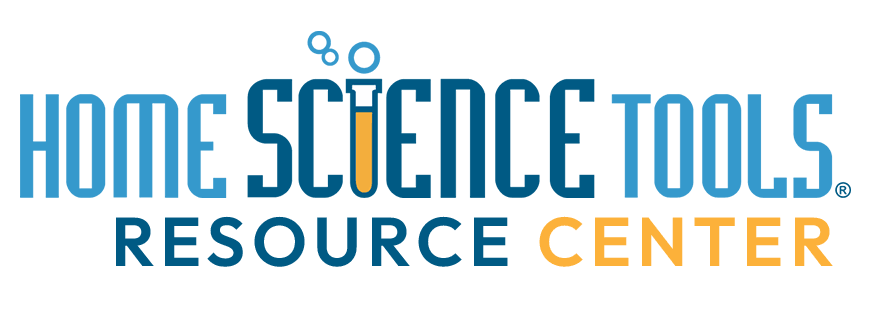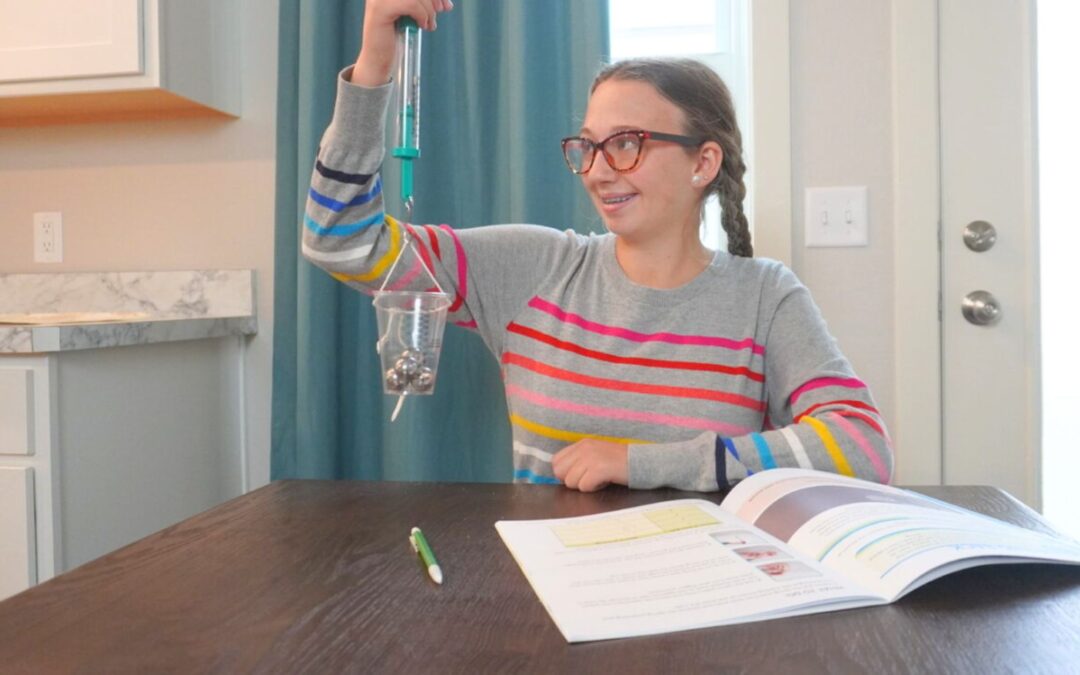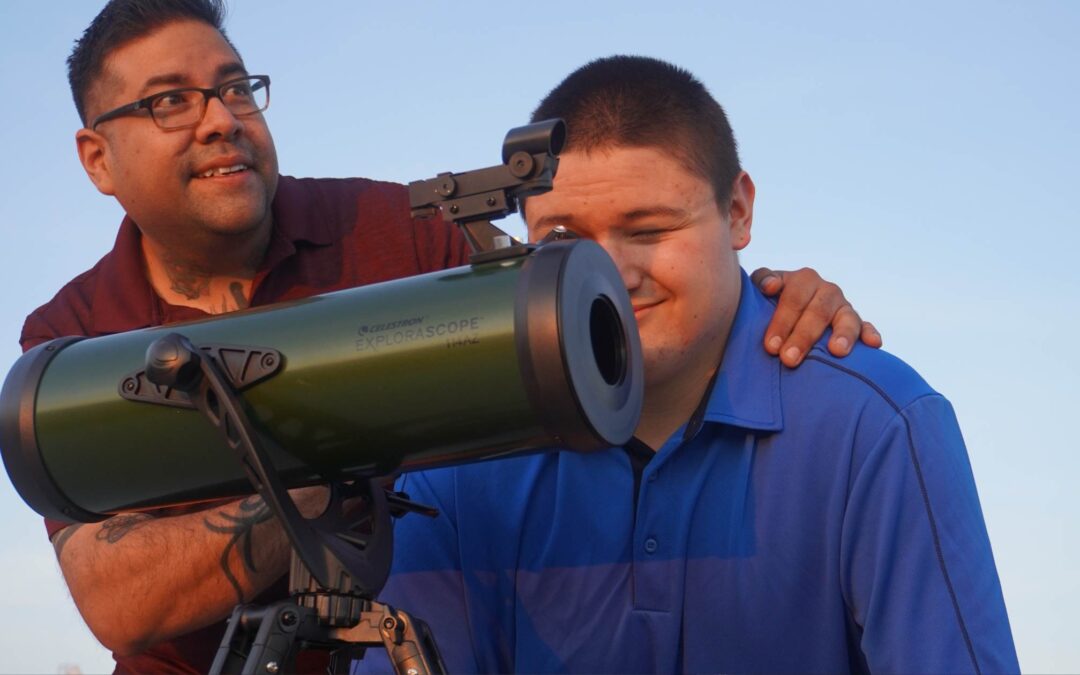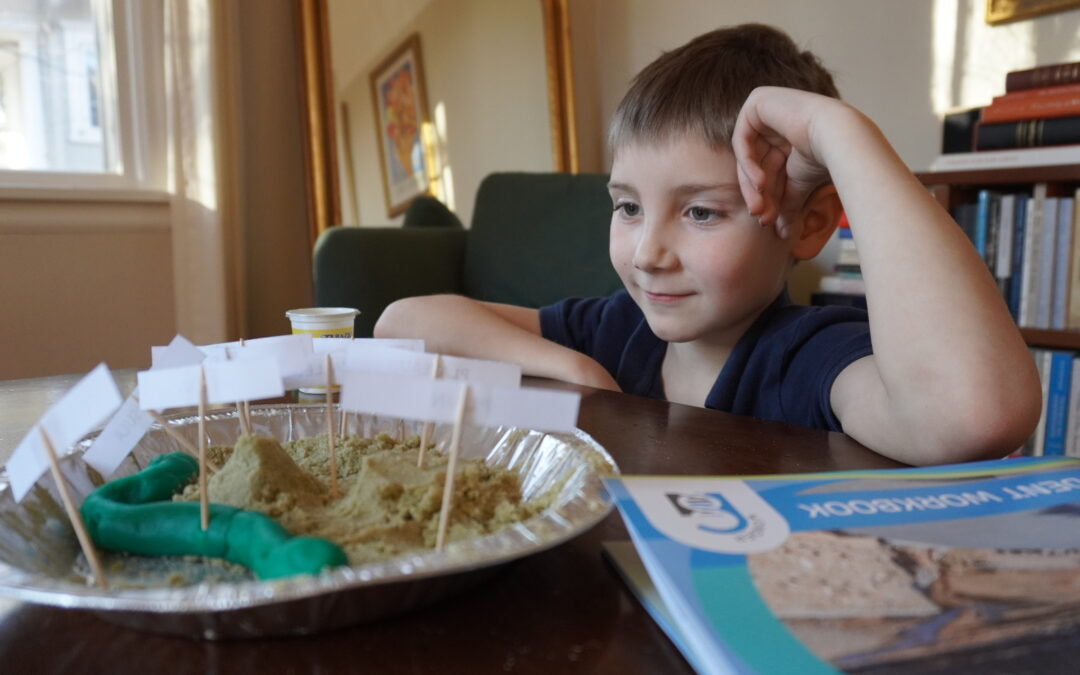Get Started: Researching Homeschool Science
Curriculums
Teaching homeschool science is a great way for families to personalize their child’s education while giving you the flexibility to teach it your way. There are many wonderful science curriculums available but figuring out which option is right for you can be a challenge. This guide will highlight key questions to consider at the beginning of your research so you can choose the best homeschool science curriculum for your child’s needs. We recommend considering these four questions at the beginning of your science curriculum research.
Question #1 What is your child’s learning style?
There are four main learning styles:
- Auditory Learners learn through listening. These students learn best by hearing verbal instructions, watching videos, or listening to audio.
- Visual Learners learn through seeing or reading. These students learn best with textbooks or workbooks with plenty of visual aids like charts, maps, and graphs, or by seeing things written or drawn on a whiteboard.
- Reading and Writing Learners learn by reading and writing things down. These students learn best by reading from a textbook and completing worksheets to reinforce memorization.
- Kinesthetic Learners – learn through touch, doing, and moving. These students may learn best with hands-on experiments and activities like real science lab experiments and all-in-one kits.
Question #2 Which worldview do you prefer?
There are three worldview approaches most homeschool science curriculums adhere to:
- Faith-based: Includes religious views related to the subject material. Some popular faith-based curricula include Berean Builders, Apologia, and BJU.
- Neutral: Does not mention faith-based or secular worldviews, or presents multiple views without indicating a preference. The award-winning Science Unlocked curriculum is the ultimate hands-on, hassle-free science education and fits perfectly into your neutral science curriculum.
- Secular: Will not include religious or faith-based views in subject material or instruction. REAL Science Odyssey and RS4K Focus on Science Series are two popular secular options.
Question #3 What is your budget?
Knowing your budget range before you begin shopping is a must. Homeschool science curriculums offer a variety of purchase options. Some are all-inclusive and some require separate purchases to get the necessary materials, so it’s important to have a budget in mind while researching options.
Here are three package options to look for when shopping for a homeschool science curriculum that fits your budget:
- All-inclusive: Textbooks, teacher guides, workbooks, and all necessary hands-on materials are provided with one purchase. Currently, the only all-inclusive science curriculum bundle offered at HST is Science Unlocked. It even includes a scope and sequence and teaching schedule.
- Additional Purchases Required: The curriculum will contain the core textbook or online subscription. Other items must be purchased separately and used with the core curriculum, like lab kits or supplies.
- Additional Purchases Optional: The curriculum will contain the core textbook or online subscription. Other items may be purchased separately if desired, like supplemental workbooks or hands-on kits.
Question #4 Which instructional format do you prefer?
There are many instructional format options available today for homeschooling, which is great news for parents and students alike. Families have more flexibility than ever before to create a unique learning environment that best supports each student.
Here are a few format options to consider:
- Traditional Textbook: Learning is delivered through a primary textbook and may offer worksheets or supplemental materials.
- Online or Digital: Learning is delivered online or in a digital format, with the ability to order or print out any supplemental materials.
- Hands-on Driven: Learning is delivered through hands-on science experiment kits or labs.
- Hybrid combination: Learning is delivered by combining any of the above formats.
When it comes to teaching science, everyone does it a little bit differently. Choose the path that works best for you and your child. We have included additional questions to consider below along with links to helpful resources and our top-selling science curriculums.
Additional questions to consider for homeschool science curriculums
Here are a few additional questions you may want to consider while researching:
- Do you prefer interest-led (choosing your areas of interest within a subject) or following a more defined grade-based curriculum?
- Are you teaching multiple students in your home? Is the ability to teach them together when possible important for your family?
- Can the materials be re-used for your younger children?
- Can you order additional student workbooks or materials?
- Look closely at peer reviews and choose highly rated options.
- Look at the amount of prep time and level of parent involvement required.
Additional Resources

Our Top-Selling Hands-On Science Curriculum
Learning Styles and Curriculum Options
How to Teach Science to Students with Learning Disabilities
Setting Up Your Homeschool Classroom
Time to start researching!
Now that you know where to begin, you’re ready to start your research. If you have any questions or need help, our friendly team is ready to support you! Chat with us online, send an email, or call us to get the support you need. Get In Touch
TIP: Bookmark this page and come back to this list while doing your research, as there are many things to think about!





